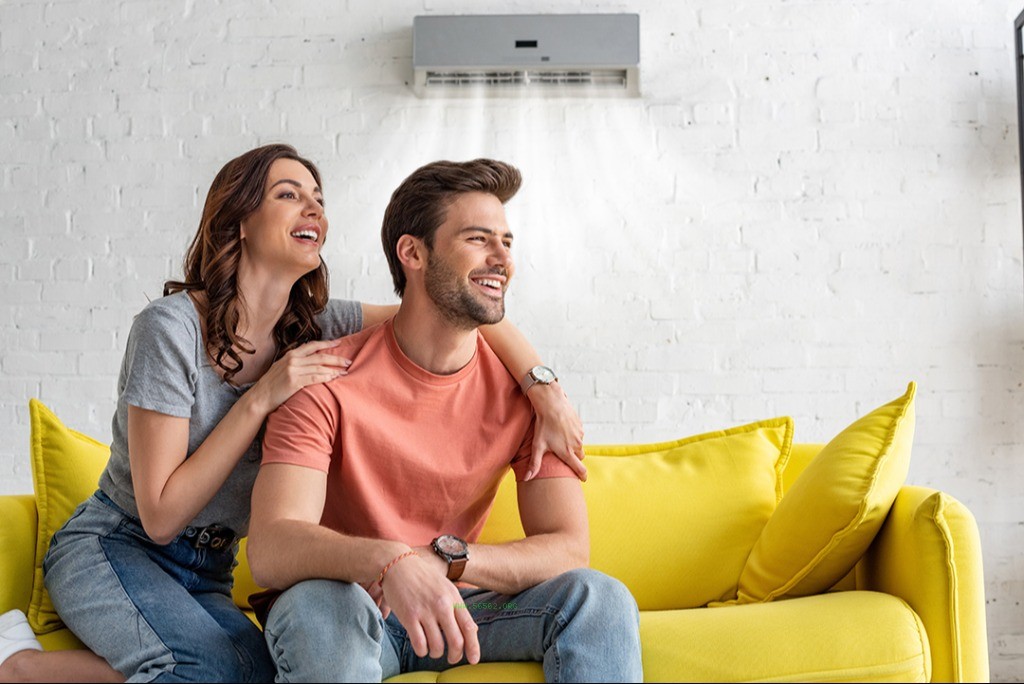In the scorching summer, as the temperature continues to rise, air conditioning becomes our powerful assistant for escaping the heat. However, when it comes to the use of air conditioning, our emotions are quite complicated: it not only provides coolness, but also causes inconvenience due to its high power consumption. Today, I will share some tips for energy-saving use of air conditioning. Mastering these, air conditioning can save more than 20% of electricity and is also beneficial to the body.

First move: Set the appropriate temperature
When starting the air conditioner, to quickly enjoy the coolness, you can first set the temperature low. As the room gradually cools down, adjust it to 26 degrees Celsius, which is considered the most comfortable temperature for the human body. Low temperature not only consumes more electricity, but may also cause discomfort and even affect health. Maintaining 26 degrees is both comfortable and energy-efficient.
Second trick: Adjust the wind direction
Many people have the habit of facing the air outlet downwards when turning on the air conditioner, thinking that this way the air conditioning can fill the room faster. But this approach did not consider the laws of air flow, in fact, cold air sinks and hot air rises. Therefore, the air conditioning should be directed upwards to allow for natural circulation of cold air, resulting in a more even room temperature and avoiding headaches or colds caused by direct blowing of cold air.
Third trick: Leaving the air conditioning on for a short period of time
Many elderly people and young people who are not familiar with air conditioning believe that they must turn off the air conditioning when going out, otherwise it will consume electricity. But if the outdoor time is short, such as three to five minutes to half an hour, there is no need to turn off the air conditioning. Due to the fact that the power consumption of air conditioning mainly occurs at the moment of start-up, if it is not left on for more than 1 hour, leaving it on can actually save electricity. If you want to save more energy, you can adjust the temperature to 28 or 29 degrees and then lower it when you go home.
Fourth move: Clever use of sleep mode
Many people may not have used the "sleep" function of the air conditioner. Turn on this mode, and when the room temperature reaches the set value or runs for 1 hour, the temperature will automatically increase by 1 ℃. After another hour, the temperature will increase by another 1 ℃. After running for 8 hours, the temperature will increase by a total of 2 ℃. This mode can save electricity by reducing the temperature difference between indoors and outdoors, making it easy for the air conditioner to shut down and rest, and automatically lowering the wind speed to the lowest level, reducing noise and ensuring sleep quality.
Fifth tip: Regularly clean the air conditioning filter
The air conditioning filter should be checked every month. If it is covered with dust, it should be cleaned in a timely manner. Otherwise, the mesh will be blocked, making the air conditioning work more laborious. Not only will the heat exchange be slow and the hot air difficult to exhaust, but it will also consume more electricity and affect the suction health.
Precautions for using air conditioning:
1. Do not turn on the air conditioning urgently.
Outdoor heat in summer can cause blood vessels to dilate. Turn on the air conditioning as soon as you enter the house, the temperature drops sharply, blood vessels contract rapidly, blood pressure may soar, and it can easily cause cardiovascular and cerebrovascular problems. You should wait for your body to cool down before opening.
2. Turn on the air conditioning first and then close the windows
To cool and ventilate the room, you should turn on the air conditioning first, remove dirt, and then close the windows.
3. Open windows for ventilation every 4 hours
If there is no ventilation for 4 hours, the air will become stale; Without ventilation for 8 hours, the air becomes dirty and may affect health, such as causing drowsiness, delayed reactions, and an increase in colds.
4. Avoid using air conditioning when sleeping on a cooling mat.
Patients with spinal cord disease, frozen shoulder, and arthritis who sleep on a cooling mat in a cold room may experience a relapse of the condition. People who are prone to abdominal pain and sensitive to cold may experience abdominal pain and diarrhea when sleeping on a cool mat.
5. Proper use of dehumidification function
In humid environments, using air conditioning for dehumidification can reduce moisture, make people comfortable, and also prevent the growth of bacteria and mold, protecting health.




Comments (0)
Leave a Comment
No comments yet
Be the first to share your thoughts!